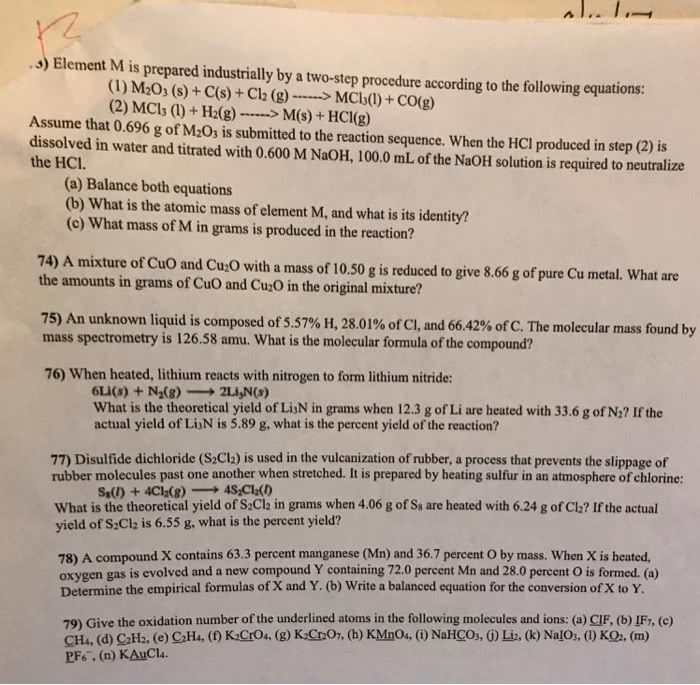CHEM 1122 Lecture Notes - Lecture 17: Empirical Formula, Chemical Formula, Molecular Mass
38 views2 pages
Document Summary
1 molecule of c reacts with 1 molecule of o2 to create 1 molecule of co2. 1 mol k+ = 1 mol kcl. 1 mol cl- = 1 mol kcl. 1 mol k+ = 1 mol cl- First convert 1 mol of compound/total grams of compound. Then convert mol of asked for element/mol of compound. Lastly conver how many grams of asked for element/1 mol of that element. Knowing mass is good, but to determine chemical formula with an unknown formula, you need mass ratio. Calculating mass % of x = (mass of x in grams/total mass of compound in grams) 100% Need mass of what you are looking for. Using mass % to calculate molecular formula. Chemical formula is written in molar ratios. Empirical formula = the lowest common denominator ratio of atoms in the chemical formula; the simplest whole number ratio. Molecular formula = the real number of atoms in the molecule.
Get access
Grade+
$40 USD/m
Billed monthly

Homework Help
Study Guides
Textbook Solutions
Class Notes
Textbook Notes
Booster Class
10 Verified Answers
Class+
$30 USD/m
Billed monthly

Homework Help
Study Guides
Textbook Solutions
Class Notes
Textbook Notes
Booster Class
7 Verified Answers
Related textbook solutions
Chemistry: Structure and Properties
2 Edition,
Tro
ISBN: 9780134293936
Basic Chemistry
5 Edition,
Timberlake
ISBN: 9780134138046
Principles of Chemistry Molecular Approach
4th Edition,
Tro
ISBN: 9780134112831
Chemistry: Structure and Properties
2nd Edition,
Tro
ISBN: 9780134293936
Principles of Chemistry Molecular Approach
3rd Edition, 2014
Tro
ISBN: 9780321971944
Chemistry: A Molecular Approach
3rd Edition,
Tro
ISBN: 9780321809247
Chemistry: A Molecular Approach
5th Edition,
Tro
ISBN: 9780134874371
Principles of Chemistry: A Molecular Approach
4th Edition,
Tro
ISBN: 9780134895741
Chemistry: The Central Science
14th Edition, 2017
Brown
ISBN: 9780134414232
